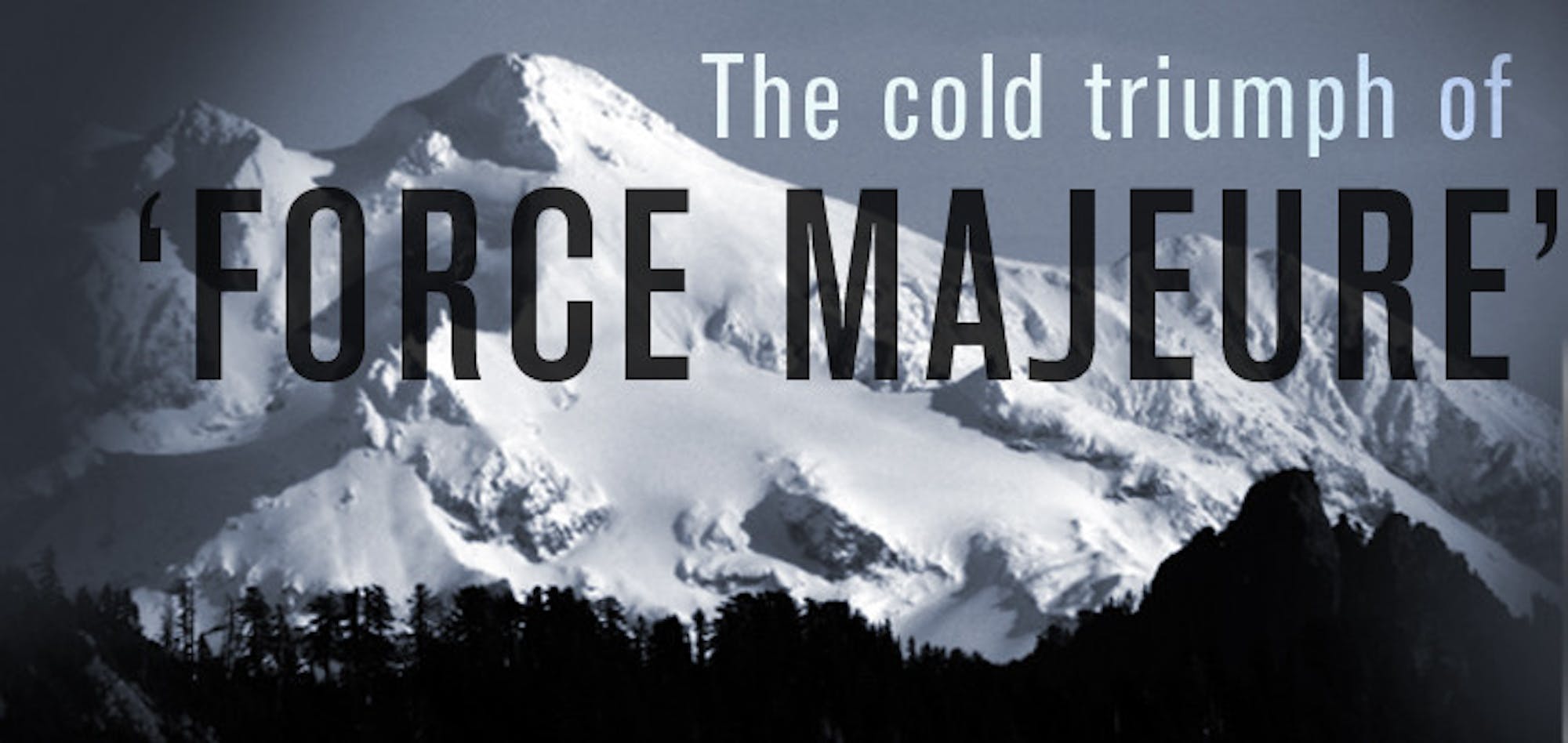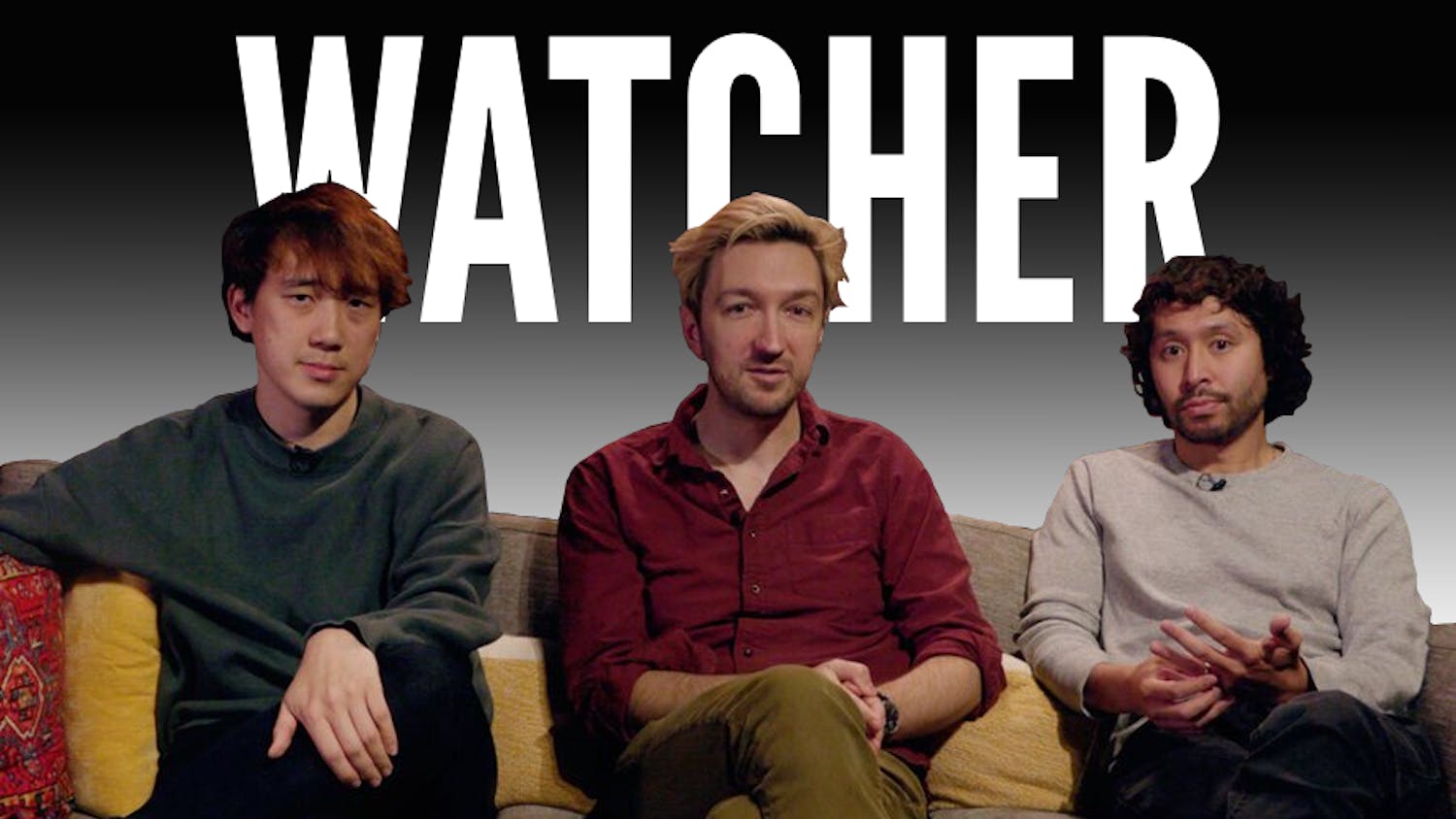
I think it’s remarkable how little we appreciate the scope of the world around us. Trees tower over our heads, fields stretch miles before our feet and buildings which took hundreds of days to create and millions of calories to construct are mere facts of life, taken for granted. The majesty of our world is forgotten as we walk through it.
The huge scope of our world is instead most often dwarfed by relatively inconsequential preoccupations. Personal issues – the status of our relationships, our need to “succeed,” and, most trivially, our need to be entertained – envelop our minds. It’s a necessary mindset. In an increasingly fast-moving world, we can either continue moving forward or get left behind.
Ruben Östlund’s brilliant 2014 film, “Force Majeure,” pits these two elements — enduring natural majesty and the modern human condition — against each other. The film’s premise is straightforward: a Swedish family on vacation at a ski resort struggles in the wake of a minor yet traumatic “force majeure”, or “act of God.” Arguments between the parents upset the couple’s two children and send a shockwave through their friend’s relationship. Despite the overwhelming beauty of the film’s setting, the French Alps, the film’s characters are unable to appreciate the world around them. “Force Majeure” focuses on the mother and father in the central family, both of whom begin to question the value and suitability of their domestic roles, in order to explore modern perceptions of gender roles and marriage. Directly contrasting setting and content, the epic beauty of the film’s atmospheric cinematography clashes with the small events which drive its plot.
With the vast number of issues it addresses, the almost constant tension between its characters and the banal nature of its plot points, “Force Majeure” could have easily crumpled under its own weight. However, excellent writing and acting bolster the film.
Johannes Kuhnke plays the father, Tomas, a man whose confidence visually disintegrates throughout the film. Kuhnke faithfully captures Tomas’ stubborn faults and struggle to understand his masculinity without making him seem helpless or pitiable.
On the other hand, Lisa Kongsli manages to grant Ebba, Tomas’ wife, a resounding intelligence and perseverance even as she dives into misery. Vincent and Clara Wettergren are excellent as their children and serve as a barometer for the state of their parents’ marriage. The rest of the supporting cast fleshes out the environment in which the core family struggles to maintain its stability.
In addition to fantastic acting and gorgeous cinematography, “Force Majeure” thrives on dark humor. “Force Majeure” has a way of revealing the ridiculous nature of everyday occurrences. The children’s struggle with their winter gear, the husband’s embarrassing interactions with younger adults and a number of hilariously inelegant yet realistic lines of dialogue provide plenty of undeniably funny — if awkward — moments. Ruben Östlund’s patience allows scenes that might otherwise be cut short to reach their highly relatable, inevitable and often amusing conclusions. In addition, the film utilizes a powerful, yet consciously over-dramatic soundtrack that lightens the mood of scenes that could otherwise have felt affected.
With an excellent script and a host of fantastic resources in its actors, setting and thematic material, “Force Majeure” strikes an impressive balance between narrative weight, breathtaking beauty and smart humor. It’s easy to see why many were upset when the film was snubbed by the academy this year; “Force Majeure” delivers on every front. It’s definitely worth putting one’s own issues aside a while to dive into those that Östlund explores in his latest film. “Force Majeure” is sure to entertain, awe and most importantly, put the viewer’s world into provoking, if worrying, perspective.













